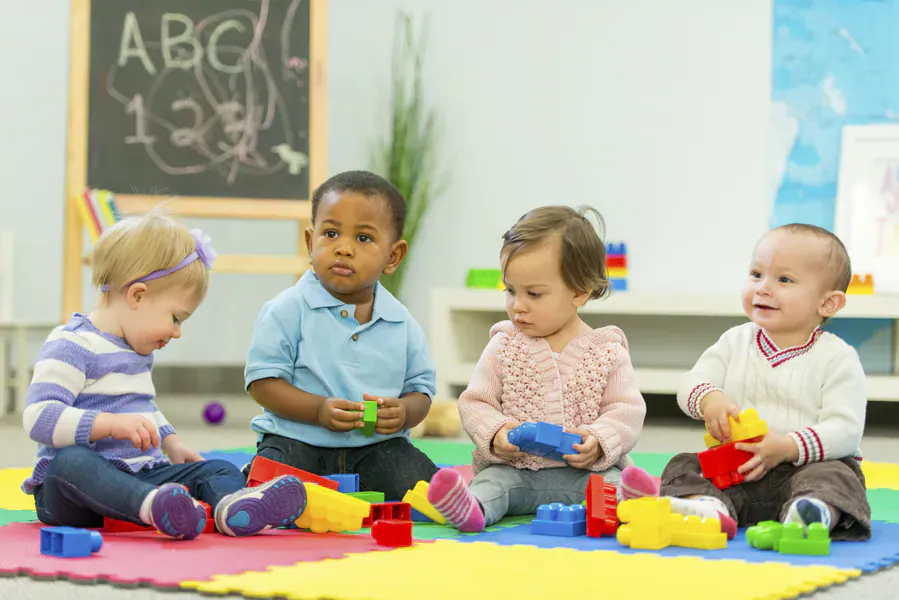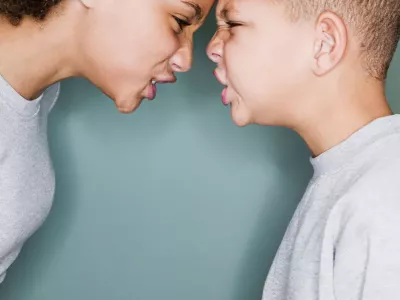New understanding of child development may end old arguments

Is child development mainly influenced by genetics or parenting?
People used to think this was an “either/or” question, but the reality isn’t so simple.
In fact, UNICEF (the United Nations Children’s Fund) has summarised what we now know in three key messages:
- Genes and experiences actually combine to influence the way the brain develops.
- Different regions of the brain have different functions, but they’re inter-related and complex.
- The early years are crucial - the connections that form in young children’s brains will be “the basis of a person’s lifelong capacity to learn, adapt to change, [and] have resilience in case of unexpected circumstances, as well physical and mental health”.
Let’s step back a bit, and look briefly at the three main aspects of child development in the years from birth to three-to-five. What are some things parents and caregivers can do to help their children develop to their full potential?
- Intellectual Development: Talk to your kids, listen to your kids, and read to your kids. Play with them, introduce them to the world and all its wonders, big and small. Everything is new to them, so rediscover with them the joy of building block towers, blowing bubbles, picking flowers (even if they’re weeds), learning about shapes and colours, letters and numbers, sounds, smells, and sensations.
- Emotional Development: You really can’t give a child too much love and affection (although you can give them too much freedom, but that’s another story). Letting your child know that you’re a calm, consistent and caring presence is fundamental to their social and psychological well-being.
- Physical Development: Do your kids spend too much time in front of a screen and eat too much processed food? It might sound obvious, but make sure there are fun outdoor activities on offer and opportunities to climb, play, run, balance, swing and slide. Give your kids plenty of fresh fruit and vegetables – use a blender if you have to! Steer clear of too many fries, sweet drinks, candy and high-fat snacks (the longer you can put off kids even tasting them, the easier it is to keep them off the agenda). Early nights are also a must, so if you’re having bedtime battles (very common) don’t delay in getting help.
But what if your kids aren’t developing the way you would expect them to? Children come in all shapes, sizes and temperaments. It’s true that some parents worry too much about whether or not their kids are hitting particular “milestones”. Adults may have unrealistic expectations of what kids are capable of doing at certain ages, or they may not be allowing for individual differences.
Having said that, if parents have a nagging feeling that something isn’t quite right, whether physically or in terms of behaviour and emotional development, it’s important they understand that what they do as parents can make a profound positive difference. Seeking help early is very important for the best long-term outcome. Even for kids who are not showing signs of any problems, effective parenting can provide the very best start in life.
Leaving aside for the moment the question of whether or not there are any physical or mental conditions that may be affecting your child, if behaviour is an issue then it’s not uncommon for parents to feel either they or their child are “to blame”. And this brings us back to the original point: that the old arguments over whether “nature” (genetics) or “nurture” (environment) played the most important role in child development are now outdated. Now, we understand that one is not “more” important than the other, because there is overlap and interplay between the two.
For example, our bodies produce certain chemicals, such as adrenaline, when we feel angry or stressed, and very different ones when we feel calm and contented. These chemicals influence our brain activity accordingly. Then there are the neural pathways in our brains which grow and change based on the experiences and information we are exposed to. The brain will “learn” to release certain chemicals in response to certain situations. And so on. Now imagine how much these factors influence physical and cognitive development when we’re talking about children, whose brains and bodies develop so rapidly in the first three to five years of life!
So things like ongoing family stress, parents frequently yelling, mums and dads fighting and the like can have quite negative effects on children’s development. However, on the positive side, there’s increasing evidence that providing parenting support to families and caregivers can have important and wide-ranging benefits for children – and parents.
This doesn’t just apply to individuals – it can be applied to whole communities, whole societies. Significant improvements in the health and well-being of children throughout a whole community can be achieved by strengthening the skills, knowledge and confidence of parents in the task of raising their children.
So if you want your kids to develop:
- Good communication and social skills
- The ability to manage their feelings
- Independence skills
- Problem solving skills
You, as a parent, could look at developing:
- An understanding of how to manage your child’s behaviour and emotions in a positive way
- Skills in using everyday situations and creating opportunities to help children learn
- Your ability to focus on the positive, even in times of stress
- Strategies and skills that help you plan ahead to prevent problems
- Better relationship and communication skills
In other words, as we move beyond the old “nature/nurture” debate, rather than asking if parenting education “mainly” benefits kids, parents, or society, let’s be clear: the answer is not “either/or”, but all of the above.
